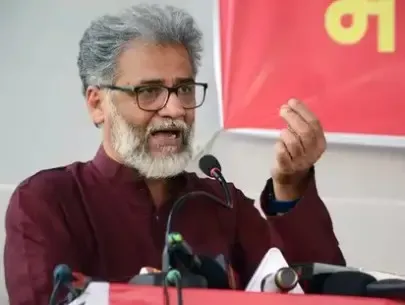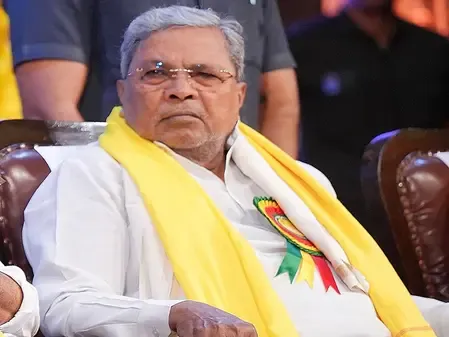Why is the CPI-ML General Secy Opposing the Centre's Plan to Suspend the Indus Waters Treaty?

Synopsis
Key Takeaways
- Suspension of the Indus Waters Treaty could harm civilians.
- Bhattacharya emphasizes the need for addressing terrorism.
- Legal consequences may arise from unilateral treaty breaches.
- The treaty has historical significance as a symbol of cooperation.
- Transparency in security measures is crucial.
Patna, April 29 (NationPress) CPI-ML General Secretary Dipankar Bhattacharya expressed his strong opposition on Tuesday to the Central government's initiative to suspend the Indus Waters Treaty with Pakistan, triggered by the recent Pahalgam terror incident. He stated that such a decision would predominantly impact civilians rather than the terrorist factions.
"Halting water supplies will primarily affect a vast population in Pakistan, rather than the terrorist groups we aim to combat," Bhattacharya asserted, highlighting that punitive measures like disrupting essential resources such as water will not resolve fundamental issues like terrorism.
The government's suggested action follows the Pahalgam attack, which has raised significant concerns regarding intelligence and security failures, he noted.
Bhattacharya emphasized the critical questions surrounding the intelligence and security shortcomings, stating, "The fundamental issue in the Pahalgam incident is an intelligence failure. Even with substantial military presence in the Kashmir Valley, there was no monitoring at the attack location. The perpetrators were reportedly active in the vicinity for almost two weeks—where was our intelligence?"
The Indus Waters Treaty, established under the auspices of the World Bank in 1960, was an agreement forged between India's then Prime Minister Jawaharlal Nehru and Pakistan's President Ayub Khan.
This treaty governs the distribution of six rivers: India maintains control over Ravi, Beas, and Sutlej, while Pakistan possesses Indus, Jhelum, and Chenab.
Given that all six rivers originate in India and flow into Pakistan, the treaty has remained a long-standing emblem of cooperation amidst conflict.
Legal analysts have pointed out that any unilateral violation of the treaty could lead to international legal repercussions, especially in the International Court of Justice located in The Hague, Netherlands.
Bhattacharya recognized the treaty's legal intricacies but advocated for caution.
"Any measures that impact civilians in either nation are not the appropriate response. We must confront the core issue—terrorism—rather than divert attention through retaliatory policy actions," he remarked while engaging with media representatives in Patna.
As public and political discussions amplify, Bhattacharya's comments provide a vital perspective advocating for thoughtful responses, transparency in national security, and prioritizing human welfare over mere symbolic retaliation.









